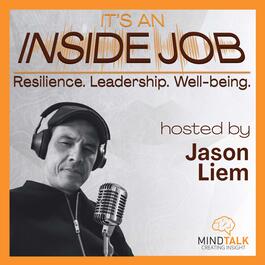
The Role of Wearables in Monitoring Stress and Optimising Health Through HRV.
Get in touch with us! We’d appreciate your feedback and comments. In this episode, we dive into practical strategies to help you take charge of your health and well-being with my guest, Dr. Torkil Færø, a general practitioner, emergency physician, award-winning photographer, and author of The Pulse Cure. Torkil shares his insights on how heart rate variability (HRV) and modern wearables can empower us to monitor our body’s stress levels and improve overall well-being. Three Key Benefits of This Episode:Tracking Your Health with HRV: Learn how to use HRV to monitor stress levels and shift your focus from disease prevention to well-being.Overcoming Stress with Self-Awareness: Discover how modern stressors like constant comparison and negativity bias affect mental health, and how building self-awareness can break these patterns.Balancing Your Lifestyle for Better Health: Gain insights on integrating sleep, nutrition, exercise, and stress management—supported by wearable technologies—to improve your health and balance the nervous system. Episode Highlights:Introduction to Heart Rate Variability (HRV):Torkil explains how HRV is a powerful tool for monitoring the balance between the sympathetic (fight-flight) and parasympathetic (rest-digest) nervous systems. He shares how variables like smartwatches and rings can track HRV, giving real-time insights into our stress levels.Understanding the Autonomic Nervous System:We discuss the importance of the autonomic nervous system (ANS) and its impact on overall health. The ANS helps manage stress and relaxation responses in the body, and balancing it is key to long-term well-being.The Impact of Modern Psychosocial Stressors:Torkil breaks down three main psychosocial stressors:Comparison: Our brain’s evolutionary programming to compare ourselves to others can lead to chronic stress, especially when amplified by social media.Negativity Bias: Our brains are wired to focus on threats and negativity, which can exacerbate stress.Extreme Adaptation Capacity: While humans can adapt to extreme circumstances, it can also lead to taking our well-being for granted in comfortable settings, leaving us more susceptible to stress. Bio: Dr Torkil Færø is a GP and emergency physician, documentary filmmaker, author and photographer. Over a 26- year career as a freelance doctor, he has worked all over Norway, had hundred thousand consultations and thus gained a unique picture of the diseases that plague us. Using wearables he found a way to track and regulate his nervous system and physiology. Web: The Pulse Cure Website Book: World of Work Experts on the People and Performance Podcast Interviews with experts and business leaders focused on ways to inspire employees. Support the show Sign up for the weekly IT"S AN INSIDE JOB NEWSLETTER takes 5 seconds to fill out receive a fresh update every Wednesday
From "It's an Inside Job"


Comments
Add comment Feedback